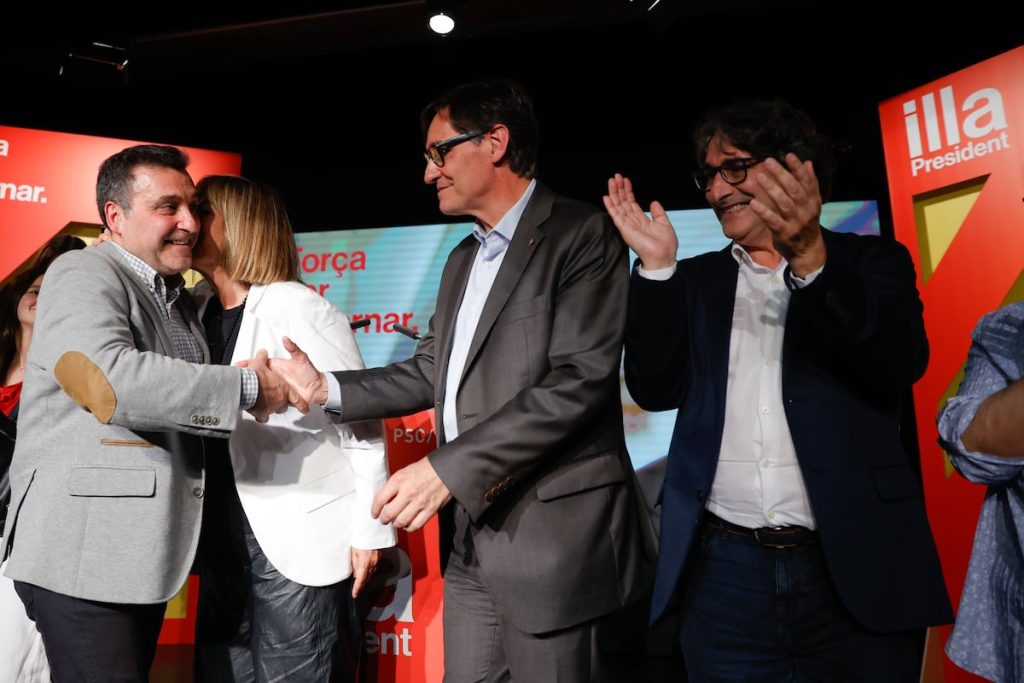The political landscape in Catalonia is currently tense, with the upcoming elections on May 12 leading to confrontations between political parties. Salvador Illa, the candidate for the PSC, has faced harsh questioning from members of ERC, including Gabriel Rufián, and Pere Aragonès. The campaign has forced both socialists and pro-independence parties to navigate their alliances carefully, with the PSOE needing Illa’s triumph to validate their policies against right-wing criticisms. However, they also risk alienating their crucial supporters, including the independence movement, particularly ERC, who are under scrutiny from Junts due to their previous compromise-oriented approach.
The socialists are trying to avoid direct confrontations, with Illa aiming to present himself as a unifying and conciliatory figure. The government itself understands ERC’s stance, acknowledging that in a campaign, alliances can be temporary. Building a stable relationship with Esquerra has not been easy for the socialists, with Oriol Junqueras’ party having contributed to the downfall of Sanchez’s first government. However, ERC has become a more dependable ally for the government compared to Junts. Despite recent tensions, especially surrounding the Pegasus case, the relationship between the two parties has mostly remained intact.
Esquerra has paid a price for their partnership with the socialists, losing seats in the last general elections. However, in the upcoming regional elections, Aragonès and his party are working hard to retain their support, focusing on voters who may lean towards various parties, including the PSC. The latest polls show that ERC is the second choice for voters from different political backgrounds, pointing to their potential to both gain and lose votes. This dynamic puts the focus on attracting voters in the metropolitan area of Barcelona, a crucial battleground for both Illa and Aragonès.
The socialist party has positioned itself as a catch-all party, appealing to a diverse range of voters, excluding extreme parties such as CUP and Vox. With a significant level of support for Prime Minister Sanchez in Catalonia, the socialists have managed to establish a stronghold in the region. Illa’s campaign strategy emphasizes his ability to reach across party lines and potentially form alliances with different groups, including Junts. However, recent controversies, such as comments made by another PSC candidate, have created setbacks for Illa’s image as a calm and unifying presence in Catalonia.
Illa’s efforts to position himself as a candidate capable of bringing stability to Catalonia face challenges as the election campaigns heat up. With tensions running high between different political parties, including public spats and accusations, the road to the elections on May 12 remains unpredictable. The dynamics of alliances and rivalries in Catalonia will continue to shape the political landscape, with both the socialists and the pro-independence parties working to secure their positions in the region. Despite these challenges, the outcome of the elections will have a significant impact on the future direction of Catalonia and its relationship with the central government in Madrid.


